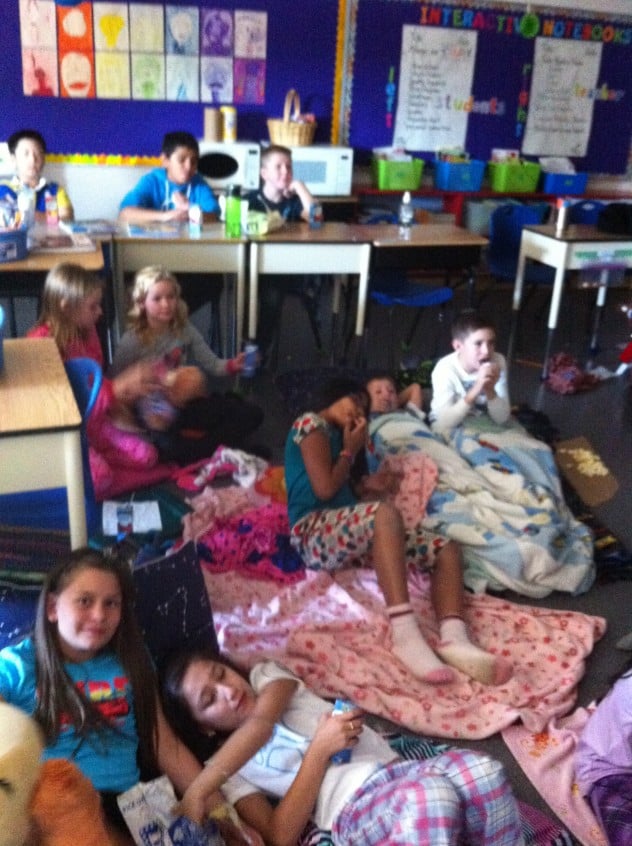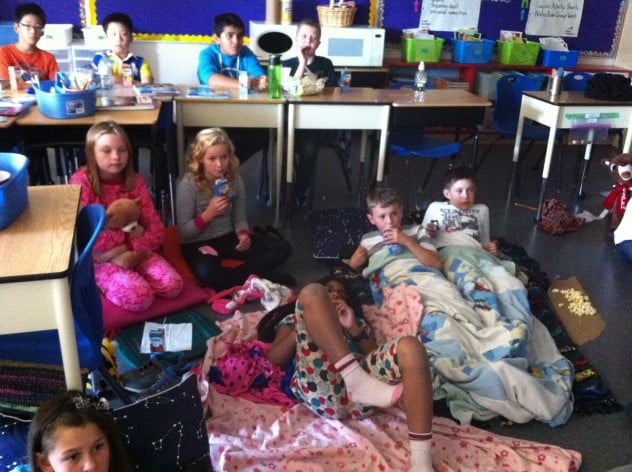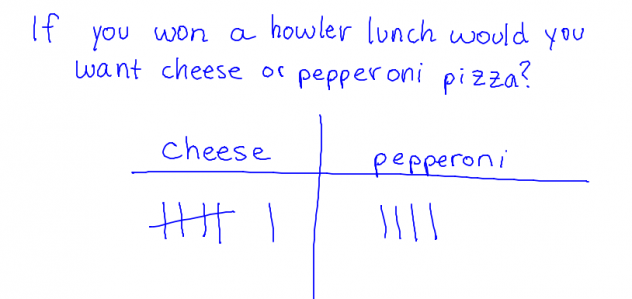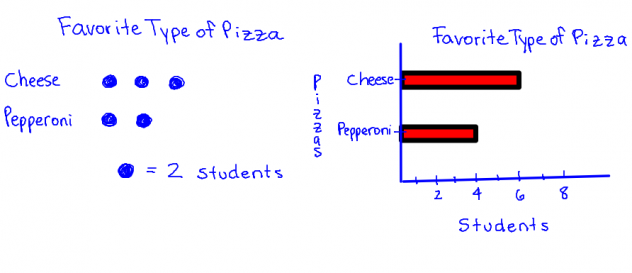Did You Know…? The largest wasp in the world is the Asian giant hornet. It’s 2 inches long with a 3 inch wingspan.
Good evening,
The Grade 4 students and I worked on a final unit problem today in Math. While we have studied pictographs and bar graphs throughout the unit, we have not practiced creating a pictograph or bar graph from data that we have collected. Today I asked the students to come up with a question, sample their classmates, and then use the data to create a pictograph and a bar graph. My examples are below:
Tomorrow we will begin our new unit on Patterns and Equations!
In Language Arts today, we reviewed our lessons from last week on topic sentences. To begin, students were challenged to find the topic sentence in the following paragraph:
It took some discussion and some debate, but we finally all agreed that even though it occurred later in the paragraph, we felt that “Eric Carle is a successful artist whose style in known all over the world” was the best topic sentence. Why? A topic sentence clearly states the main idea of a paragraph, and we felt that this sentence summarized the main idea best. The rest of the sentences were the details that supported it. Our next topic of discussion will be on the main details of paragraphs.
In French today, we first reviewed our “Est-ce que je peux…” sentences from last week. Then, to have the students practicing speaking these sentences, they played charades. One student would act out the action of the sentence, while the others would guess. Students had to guess in French. Afterwards, we began to discuss “La Politesse” or politeness (Politeness – Powerpoint). Students were introduced to some new words and phrases that they would use to politely interact in French. We learned:
- Merci (Thank You)
- S’il Vous Plaît (Please)
- Excusez-moi (Excuse me)
- Au Revoir (Goodbye)
- À Bientôt (See You Soon)
- À Demain (See You Tomorrow)
- Beinvenue (You’re Welcome)
Students can now use these expressions with our previous sentences, in order to be polite. For example, students could say:
“Excusez-moi, est-ce que je peux aller aux toilettes, s’il vous plaît?”
This would be more polite. It would also be more correct in a way. French, for the most part, is a more formal language. Individuals rarely address others as casually as we do in English. So, when not speaking to family or close friends, being polite is very important when speaking in French. Finally, we watched the following video as a fun way to review some of the sentences and expressions we have learned so far this year:
We had our classroom reward today and watched “Wayside School: The Movie.” We thought this would be a good choice because we have just finished reading “Sideways Stories From Wayside School” by Louis Sachar as our read aloud book. Thank you for helping to clean up soo quickly this afternoon everyone. Even with all the blankets, pillows, popcorn, and juice, the classroom looked great at the end of the day.
Agenda:
Read 20 minutes
Practice spelling words (student Agenda, SpellingCity)
Math:
- Statistics and Probability Unit Test (Oct. 5nd – Grade 5)
- Worksheet #1-8 (Grade 5)
Social:
- Provinces/Capitals Quiz (Thursday – Grade 4 and 5)





